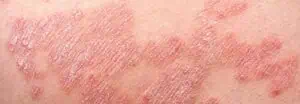Are past breakouts leaving you feeling self-conscious or shy about your skin?
There are a number of reasons why acne scars form, but the most common reason is a result of pimples or other blemishes on your skin popping, causing the surrounding areas to become inflamed.
Inflammation causes your body to produce more collagen, which leads to scarring.
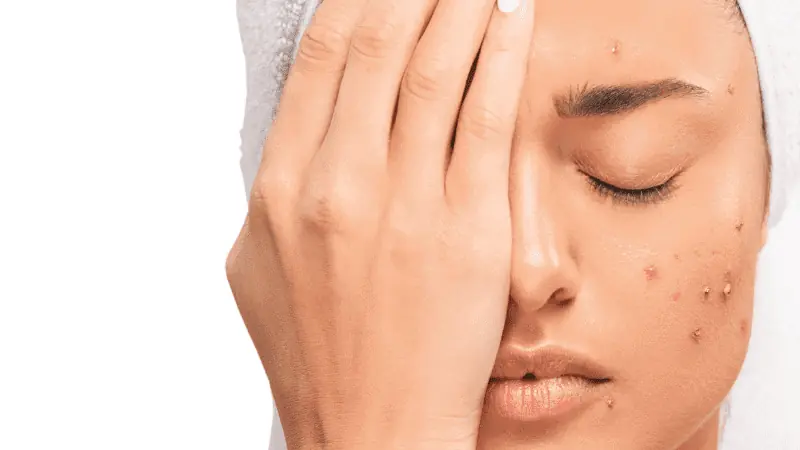
Why do some people suffer from acne scars whilst others come out blemish-free?
If you’ve overcome a bout of acne, it may feel like a massive victory has been won. While some people are fortunate enough to have blemishes that disappear without leaving a mark, others are left with visual reminders of their past breakouts, which can understandably take an emotional toll. So often, if acne is left untreated, the blemishes leave their mark on your skin long after the breakout has receded in the form of acne scarring. If left untreated, pitted scars and patches of red pigmentation can linger for a very long time.
Many say experiencing acne scarring may be a result of genetics. If someone in your family has struggled with acne, you may be more likely to experience the same. Additionally, scarring becomes more common as we age because collagen production decreases as we get older. Collagen is important for the healing process; when we experience a breakout, our skin produces new collagen in order to repair itself. However, sometimes too little or too much collagen is produced, resulting in a scar.
Remember that acne is an inflammatory condition; scar development has a lot to do with the extent and duration of skin inflammation. Therefore, if you delay treatment for your acne, you’re also increasing your risk for scarring. Anyone who experiences a breakout can have temporary or permanent scars, but scarring is most common in those with inflammatory acne.
The best prevention for acne scarring is to supplement acne treatment with good skin care, a healthy diet, and appropriate treatment. Since reducing skin inflammation can lessen scars, don’t ignore an acne breakout — even if it may seem like a mild case.
7 Acne Scarring Treatments Recommended By Stratum Clinics
Acne scars are one of the most frustrating skin concerns to deal with. While there are a number of over-the-counter treatments and guides about how to get rid of acne scars, they don’t always work for everyone. There are different types of scars and each type requires a different treatment approach. Some treatments work better for certain types of scars than others, so it is important to know what type of scar you have before starting any treatment.
Fortunately, our team of experts have put together a list of the seven best treatments for reducing or removing acne scars.
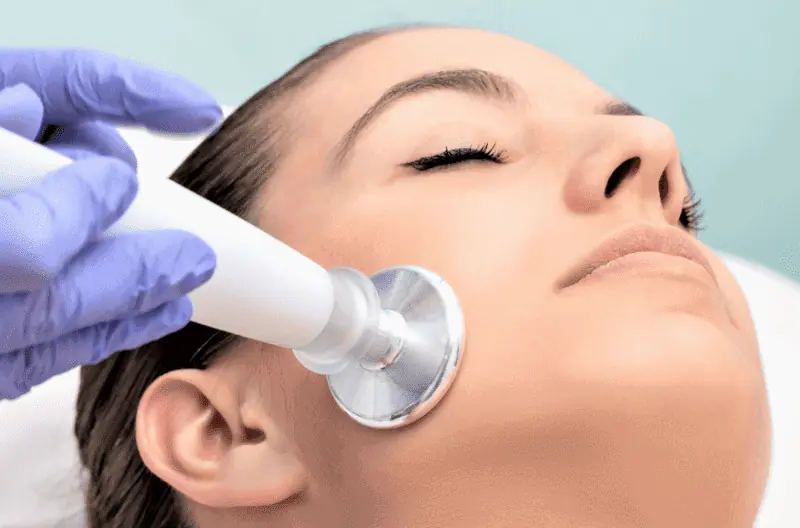
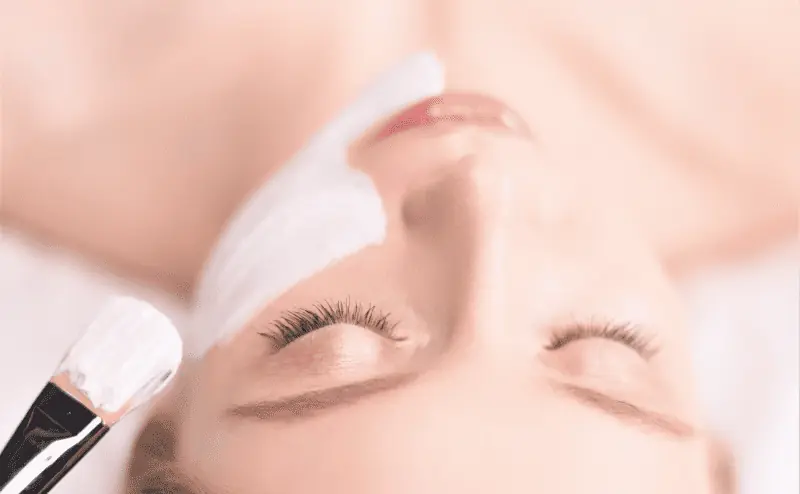
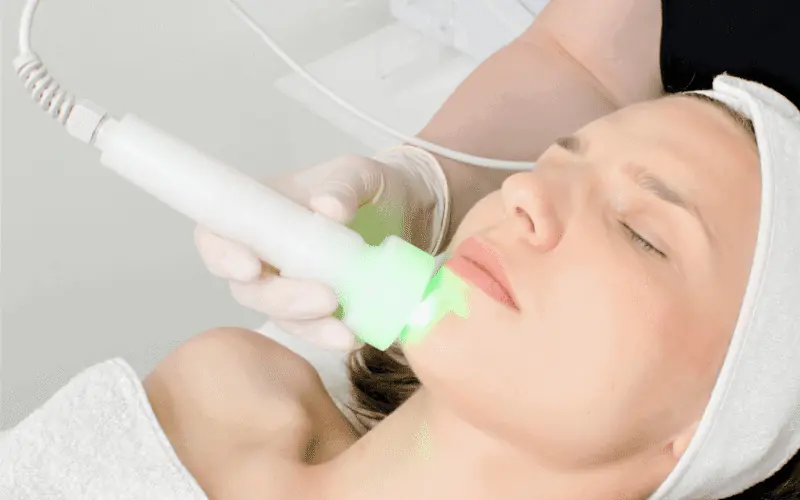
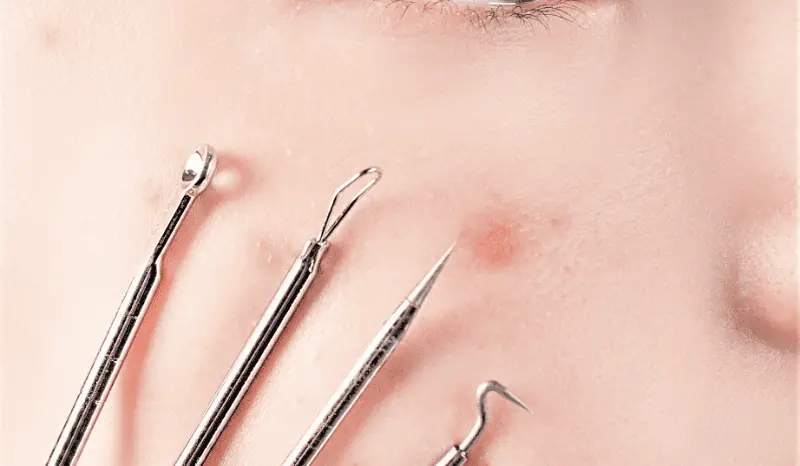
1. Microdermabrasion
Microdermabrasion is a popular cosmetic treatment that can improve the overall appearance of your skin. The procedure involves using a small, handheld device to sand away the top layer of skin cells. This can help to reduce the appearance of acne scars, and is a safe and effective procedure that is suitable for both men and women of all skin types.
Microdermabrasion eradicates scarring by gently removing the outer layer of skin, leaving the skin looking softer, brighter and stimulating new cell growth. Each treatment takes approximately 45 minutes and a course of 3-6 treatments is usually recommended.
2. Chemical Peels
Chemical peels are great for getting rid of deep acne scars. There are varying degrees of intensity when it comes to chemical peels. Medium chemical peels go further into the skin and are more successful in fading the appearance of acne scars.
Chemical peels work by carefully removing the outer layer of the skin. This stimulates the generation of new skin growth which helps to reduce oil, unblock pores, reduce blackheads and minimise acne breakouts.
3. Microneedling Scar Treatment
Sterile probes are inserted into the skin to stimulate the production of collagen. The probes enter the skin vertically, without causing any damage to the tissue. This triggers the body’s natural healing response, resulting in the formation of new cells.
4. Fractional Laser Resurfacing
Fractional laser resurfacing rejuvenates the skin by using a laser to deliver small micro-beams to the skin which creates tiny columns of treated tissue amongst the healthy tissue to promote healthy-looking skin.
Fractional laser resurfacing is a highly effective laser scar removal treatment, reducing the appearance of acne scars.
5. Minor Surgery
If you’re dealing with advanced acne scarring, or other treatments haven’t been effective enough, you might want to consider surgical options. In some cases, minor surgery in the form of subcision or excision can help improve the appearance of your acne scars.
6. Subcision
If you’re looking for a way to get rid of those pesky acne scars, subcision may be the answer. This minor, in-office surgical procedure involves inserting a small needle into your skin to release the acne scar from the underlying tissue. This allows your skin to rise and to diminish the appearance of the acne scar. If you feel this may be the right solution to get rid of those embarrassing scars, talk to your doctor about subcision as an option to reduce your acne scarring.
7. Punch Excision
If you’re dealing with advanced acne scarring, or other treatments haven’t been effective enough, you might want to consider surgical options. In some cases, minor surgery in the form of subcision or excision can help improve the appearance of your acne scars.
Consulting a Dermatologist About Your Case of Acne Scarring
As you can see, there are several different types of treatments available which can remove or fade your acne scars, making them less noticeable and helping you to regain your self-confidence. If you’re wondering how to get rid of acne scars on your skin, the right treatment for your case of acne scarring depends on the severity and location of your acne scars.
With acne being so complicated, it’s always best to consult an experienced acne dermatologist. Your dermatologist will be able to analyse your skin, diet and general health to assess the right type of acne scar removal treatment for your skin.
For more information on acne scar removal treatments for your acne scarring, we welcome you to book a consultation with us. Alternatively, please contact us to speak to one of our experts.

